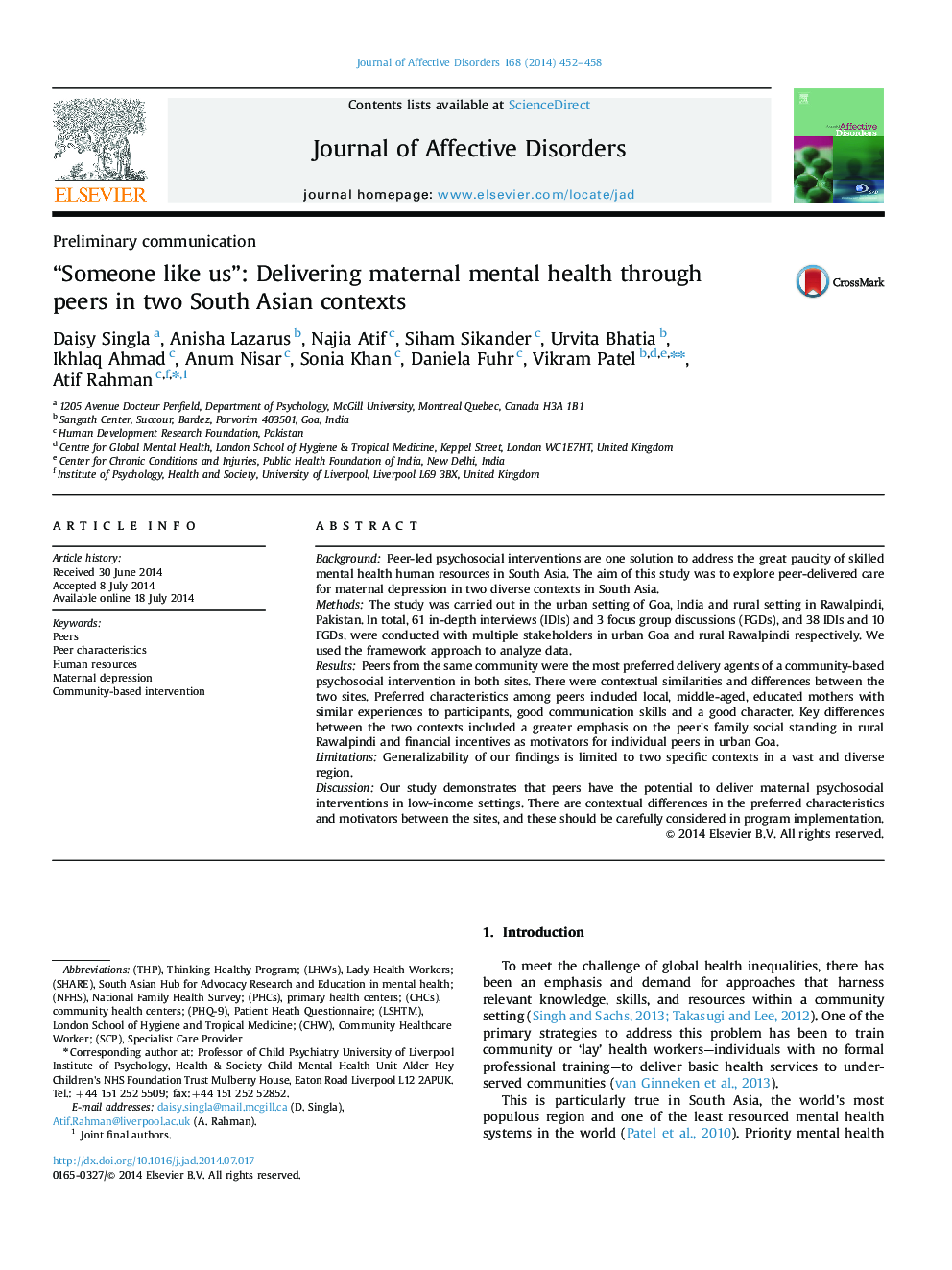| Article ID | Journal | Published Year | Pages | File Type |
|---|---|---|---|---|
| 6232752 | Journal of Affective Disorders | 2014 | 7 Pages |
BackgroundPeer-led psychosocial interventions are one solution to address the great paucity of skilled mental health human resources in South Asia. The aim of this study was to explore peer-delivered care for maternal depression in two diverse contexts in South Asia.MethodsThe study was carried out in the urban setting of Goa, India and rural setting in Rawalpindi, Pakistan. In total, 61 in-depth interviews (IDIs) and 3 focus group discussions (FGDs), and 38 IDIs and 10 FGDs, were conducted with multiple stakeholders in urban Goa and rural Rawalpindi respectively. We used the framework approach to analyze data.ResultsPeers from the same community were the most preferred delivery agents of a community-based psychosocial intervention in both sites. There were contextual similarities and differences between the two sites. Preferred characteristics among peers included local, middle-aged, educated mothers with similar experiences to participants, good communication skills and a good character. Key differences between the two contexts included a greater emphasis on the peer׳s family social standing in rural Rawalpindi and financial incentives as motivators for individual peers in urban Goa.LimitationsGeneralizability of our findings is limited to two specific contexts in a vast and diverse region.DiscussionOur study demonstrates that peers have the potential to deliver maternal psychosocial interventions in low-income settings. There are contextual differences in the preferred characteristics and motivators between the sites, and these should be carefully considered in program implementation.
